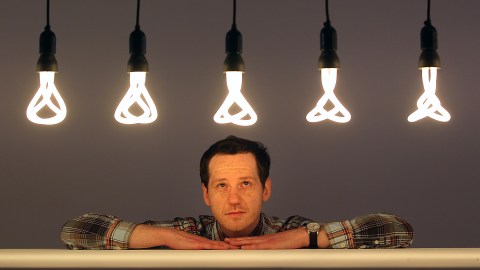Sleeping 8 Hours Straight Isn’t How Your Ancestors Did It

We didn’t always sleep how we do today–a full eight hours of uninterrupted sleep. Several centuries ago, doctors prescribed a far different sleep regimen. But the advent of the light bulb changed all that. Lynn Stuart Parramore of Alternet found this lost history of sleep while trying to remedy her own sleep issues. She would wake for a couple hours in the middle of the night, becoming anxious that the next day she would be sleep deprived. But she discovered her midnight wakefulness was considered natural… several centuries ago.
People did not evolve to sleep soundly the entire night. It was only until going out at night was in vogue that people would sleep in two stages dubbed the “first sleep” and “second sleep.” Before electricity and street lamps became the norm, the night belonged to more unsavory folk, and few people at the time could afford a lantern bearer to light the way in the dark. So, most people before the 17th century would stay at home, in bed, and wake in the middle of the night to read, chat with neighbors or bedfellows, or have sex.
When street lighting and the industrial revolution came about, historian Craig Koslofsky notes that health authorities of the 19th century recommended a single sleep—one uninterrupted night. People, like Parramore, who wake in the middle of the night don’t have a disorder and certainly don’t need sleep aids to get them through a full night:
“Since our collective memory has been erased, anxiety about nighttime wakefulness has kept us up even longer, and our eight-hour sleep mandate may have made us more prone to stress. The long period of relaxation we used to get after a hard day’s work may have been better for our peace of mind than all the yoga in Manhattan.”
Before you rush to your doctor to get an prescription for Ambien, consider that your anxiety may be misplaced and you should use your middle of the night disruption as a natural course of your sleep cycle. After all there’s a lot of different ways to sleep other than in one shot for 8-hours. Many people have experimented with alternative sleep cycles, Dan Love of the High Existence has outlined many of the different ways you can go about sleeping.
Shelby Harris is a sleep researcher and Assistant Professor of Neurology and Psychiatry at the Albert Einstein College of Medicine. In the pre-modern world, says Harris, circadian rhythms were synched with the rising and setting of the sun, but modern life requires many to adjust their internal clocks to accommodate alternative sleeping habits.





